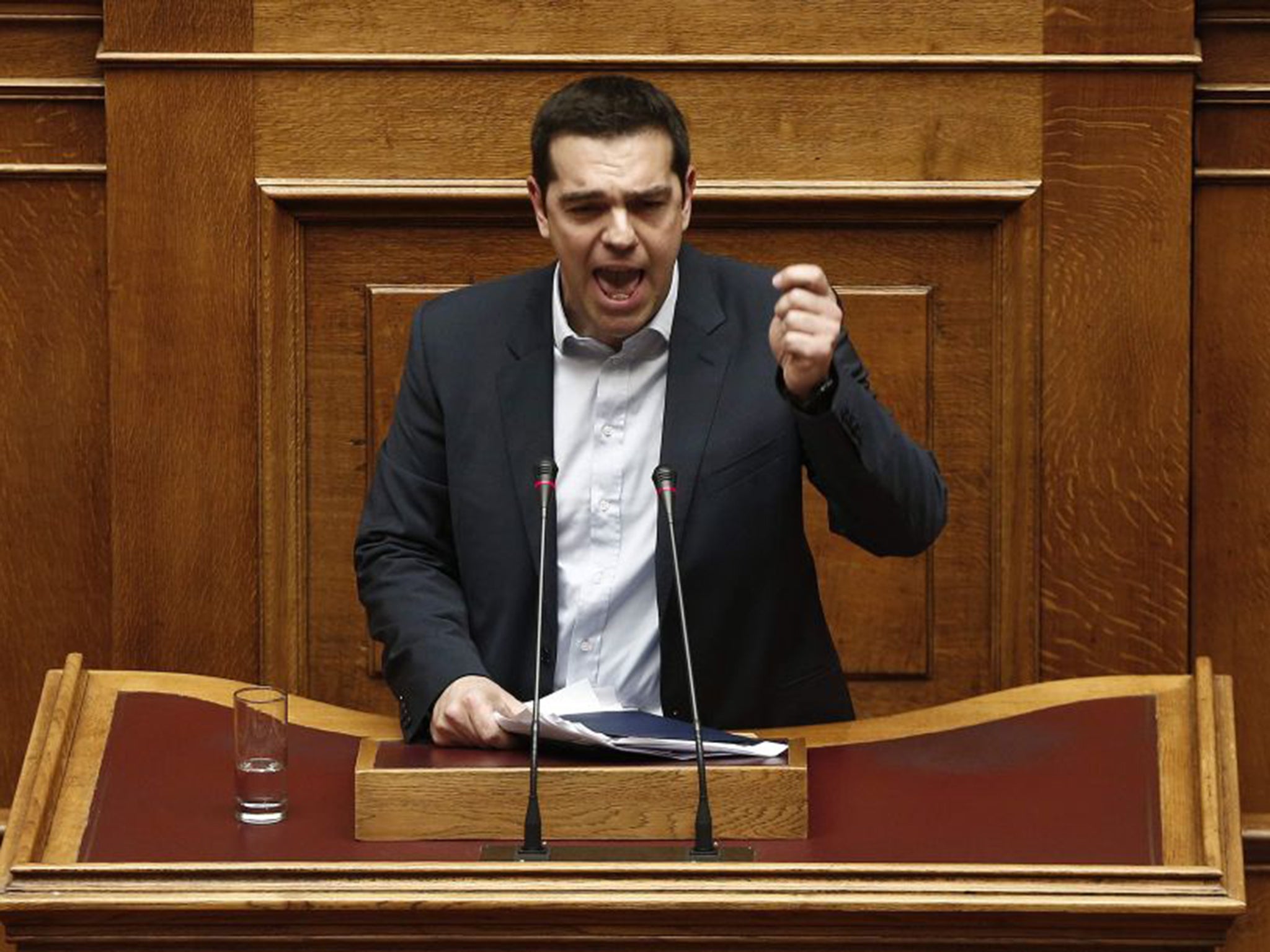It's political reasons - not financial ones - that are stopping a new bailout deal with eurozone, says Greek PM
As shares drop sharply again, Greece calls for new 'bridge deal' on €240bn loan

Your support helps us to tell the story
From reproductive rights to climate change to Big Tech, The Independent is on the ground when the story is developing. Whether it's investigating the financials of Elon Musk's pro-Trump PAC or producing our latest documentary, 'The A Word', which shines a light on the American women fighting for reproductive rights, we know how important it is to parse out the facts from the messaging.
At such a critical moment in US history, we need reporters on the ground. Your donation allows us to keep sending journalists to speak to both sides of the story.
The Independent is trusted by Americans across the entire political spectrum. And unlike many other quality news outlets, we choose not to lock Americans out of our reporting and analysis with paywalls. We believe quality journalism should be available to everyone, paid for by those who can afford it.
Your support makes all the difference.After Greece’s new Prime Minister laid out an end to “bailout barbarity” in a rousing speech to parliament, the country’s finance heads now plan to propose a “bridge deal” to ease fears of a eurozone exit.
As shares again dropped today, sources in Greece’s Finance Ministry, which has hired international investment bank, Lazard, to advise it on negotiations with the Troika, told The Independent that such a deal would allow Greece to “breathe” amid continuing demands of bailout repayments of €240bn (£178bn). German Chancellor Angela Merkel declined to speculate on the bridge deal.
One senior official said the Greek government would seek a temporary deal to allow it to put forward new proposals for debt repayment – replacing the current bailout agreement.
For Athens, and the new ruling Syriza party, there still remain non-negotiable “red lines” for the new agreement: restructuring the debt and lowering the targeted primary budget surplus.
Amid wider European losses, Greek shares closed down 4.75 per cent after dropping as much as 6 per cent, continuing a negative run torday. On Wednesday, eurozone finance ministers are holding an extraordinary meeting to discuss Greece.
Finance Minister Yanis Varoufakis has dismissed the €240bn bailout packages crafted by Greece’s lenders as a “toxic fantasy” that had always been doomed to fail. “The time has come to say what officials admit when the microphones are turned off and say out in the open... At some point someone has to say `No’ and that role has fallen to us, little Greece,” he told parliament.
After being elected late last month with a mandate to end austerity, corruption and curb the power of the oligarchy, Prime Minister Alexis Tsipras is unlikely to go back on anti-austerity promises. Many in Greece welcome the government’s combative stance. Vivi Daloglou, a hairdresser with a salon on a busy street in central Athens said: “We finally have a voice in the world again and we’re back on the agenda.” She added: “I don’t think we will leave the euro and return to the drachma – no doubt Europeans must get their money back, but we must have growth again because how can you get your money back from someone who’s unemployed?”

Mr Tsipras’ speech to Parliament on Sunday night has rallied many Greeks, such as Ms Daloglou. “We will not negotiate the pride and dignity of our people,” Mr Tsipras said.
With Athens hurtling toward a default, the country’s creditors are pressuring the government to abide by the current austerity-laden bailout. Meanwhile, the European Central Bank upped the ante by announcing it could stop funding the country’s banks on Wednesday – instead of the original 28 February – forcing Athens to resort to an emergency mechanism to remain solvent and avoid a run on the banks in the coming days.
“It’s in everyone’s interest to reach a mutually beneficial deal,” Mr Tsipras reiterated in Vienna with his Austrian counterpart yesterday. “I don’t believe there is any serious reason for a deal not to exist between Greece and its partners – only political reasons,” he added.
Join our commenting forum
Join thought-provoking conversations, follow other Independent readers and see their replies
Comments